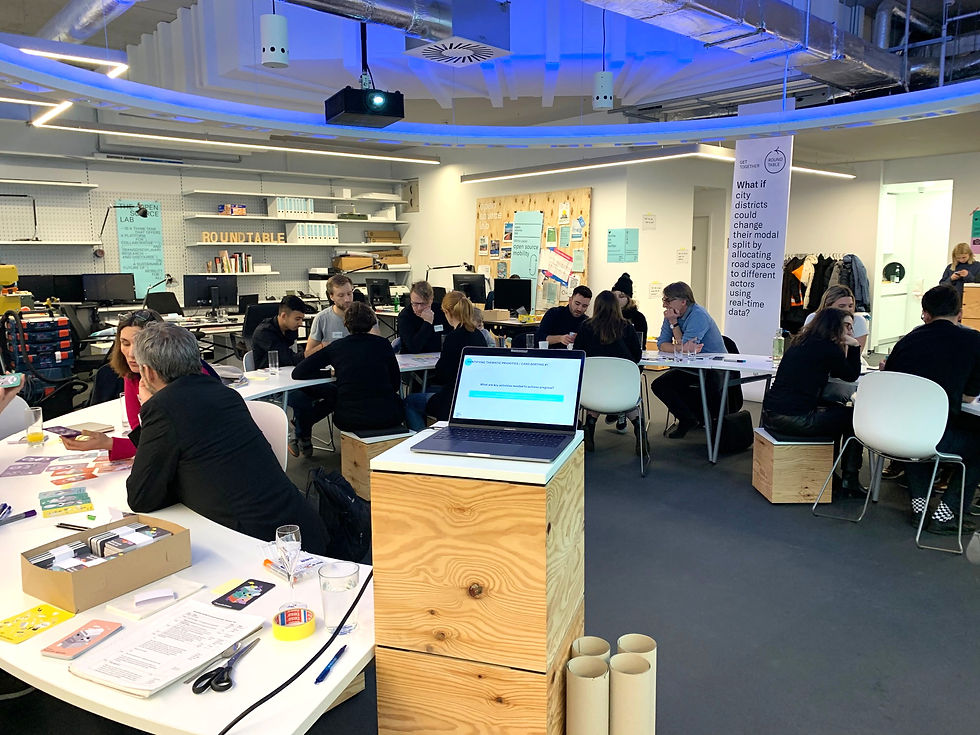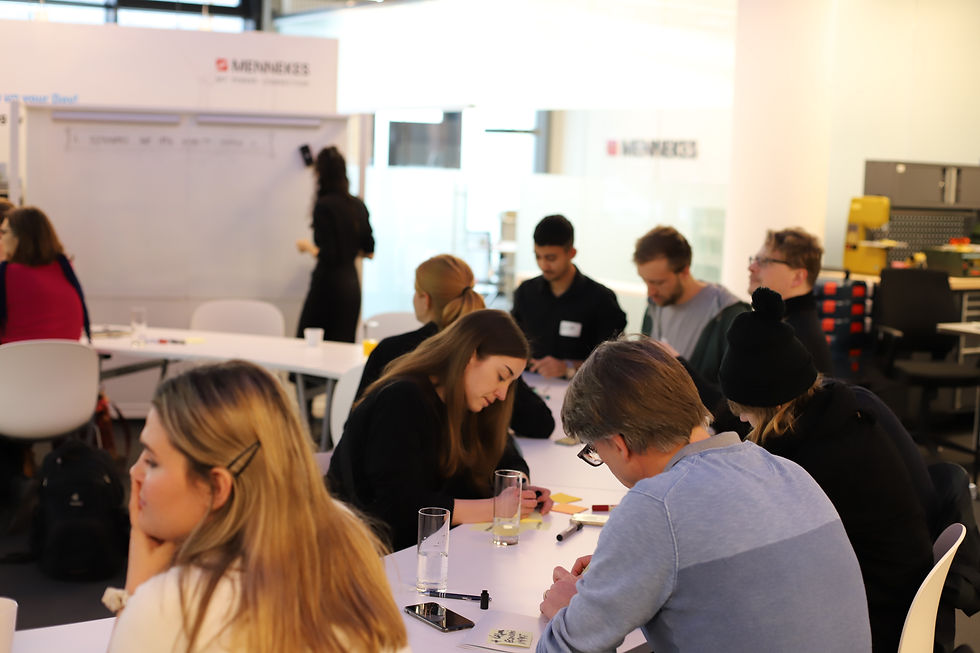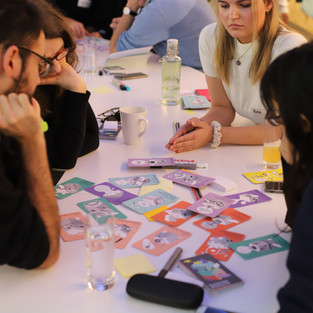Creating urban digitisation and governance futures
- Tina Gallico

- Feb 28, 2020
- 3 min read
Updated: Dec 29, 2020
A workshop for identifying barriers to progress and imagining urban transport systems potentials with the Sustainable Mobility Kit.
_________________________________________________________________________________

Last week I delivered a workshop based on the Sustainable Mobility Kit. It doubled a user research session for me to ascertain feedback on the taxonomy of sustainable and open mobility conceptual framework, the card deck as a more accessible translation of that research and the complex themes within, as well as providing insights on the card deck as an education and creative thinking tool.
I intend to develop the cards further based on this initial user feedback, so I see them at this point as a prototype than a finished product. The workshop design could also be developed into different formats depending on its purpose e.g. public (policy) consultation, inter-organisational training or tertiary education learning experience.
This workshop was two hours, however it could be a half or full day session. The latter would certainly be preferable to more meaningfully explore the challenges to sustainable digital transformations as they exist at multiple-scales, are context dependent and stakeholder perspectives are diverse. More time could also allow a mini-sprint process to identify possible solutions. In that case the Mobility Kit could be the primary tool for contextualising challenges and problem framing, then with re-framing prompts they could be an initial basis for ideating novel pathways, or at least system linkages that need to be addressed.
Below is a reproduction of the commentary I wrote for the Open Source Lab blog about the workshop.
....
Recap: Sustainable Open Mobility Workshop
The Open Source Lab launched the Sustainable Mobility Kit prototype with a collaborative workshop including experts in transport public policy, futures research and product design.

Round-up
The Sustainable Open Mobility Workshop marked the publication of the Sustainable Mobility Kit. I developed the kit as a way to enable stakeholders to better understand and participate in inciting ideas about what the future of sustainable urban mobility could look like, particularly in light of digitisation processes underway. The Kit directly aligns with the Sustainable Open Mobility Taxonomy conceptualisation and additionally provides provocations for each theme to engage the users so that they are transformed from observer to active participant in the discourse.
Attending to provide expert input into workshop activities were special guests:
Jakob Kluge, Research Associate, Institute for Futures Studies and Technology Assessment
Deborah Sillmann, UX Design Concepter, Volkswagen Group Future Center
Holger Dalkmann, CEO and Founder, Sustain2030
There was also significant expertise represented by the workshop participants including in the spheres of innovation strategy and practice, artificial intelligence, engineering, product design and mobility consultancy.
The workshop
The workshop was a mini-version of what could be a half-day or full day workshop. It started with introductions, followed by small group brainstorming after which we discovered the similarities between different group’s ideas with an idea lottery. After this I gave a short presentation about the development of the taxonomy and the Sustainable Mobility Kit. After being provided with a deck of cards small groups were assigned card sorting exercises which highlighted the many links and priorities between different actors and components within a transport system. With some ‘how might we’ ideating and poster making the groups communicated visions for how some of the challenges within the system might be addressed. This activity highlighted the difference in perspectives amongst stakeholders and the importance of incorporating actors or issues that aren’t provided into the base card deck, but can be made with a DIY card template.
The feedback
The expert guests and workshop participants gave excellent feedback on the Sustainable Mobility Kit content as well as the workshop format. In terms of addressing the biggest challenges to sustainable urban mobility, topics that arose included missing political will and under investment in infrastructure for sustainable modes of transportation. In addition, efforts on supply must be matched with a far greater emphasis on demand management. Overall, we should also question how digitalization transformations could help us to reduce or optimize demand.
Further development of the Sustainable Mobility Kit
The workshop will inform the further development of the Kit to improve its effectiveness and usability. We are hoping to make it a truly useful tool for anyone seeking to engage stakeholders in collaboration on urban mobility transformations or provide an introductory and interactive educational tool about urban transport systems sustainability, governance or open innovation ecosystems.
The Sustainable Mobility Kit is, and will always be, a free resource for anyone to download here.





















Comments